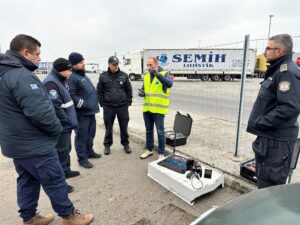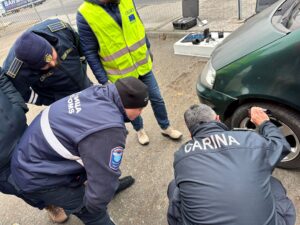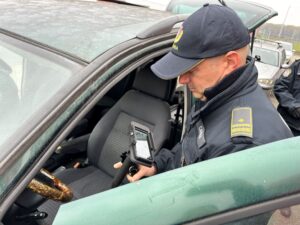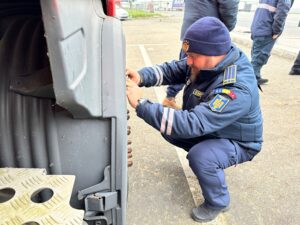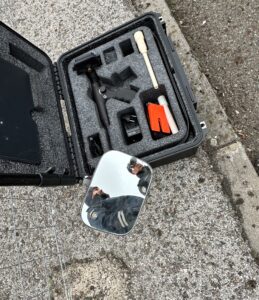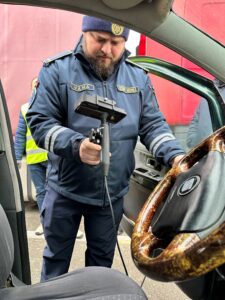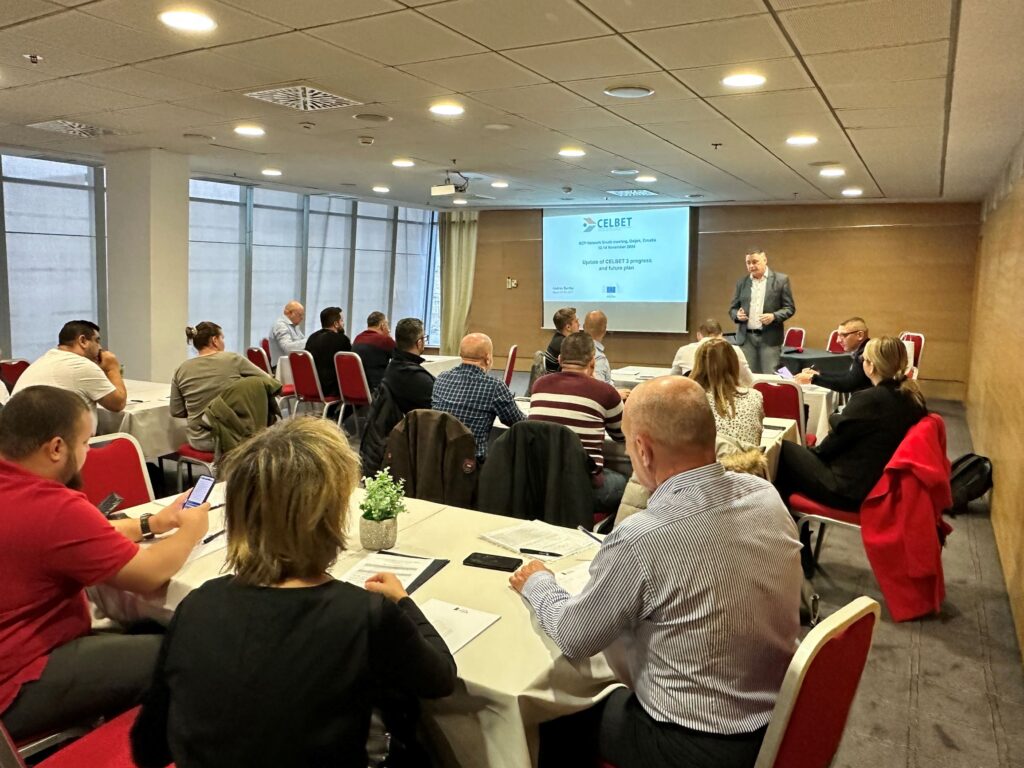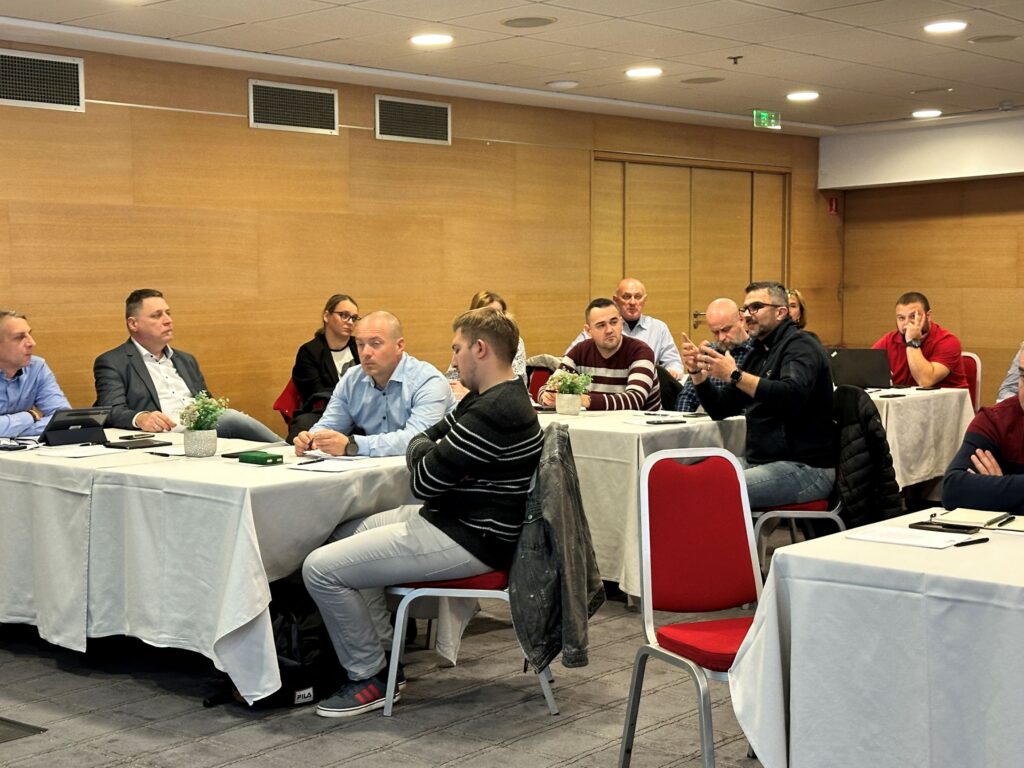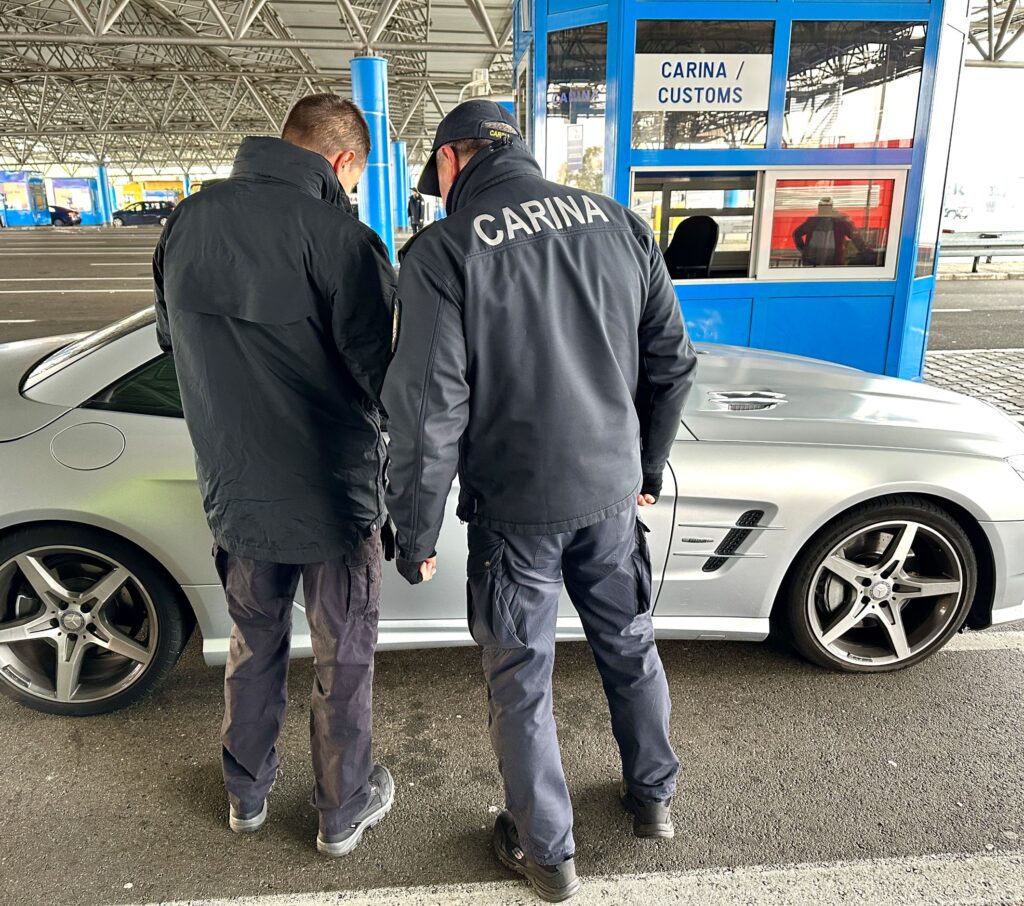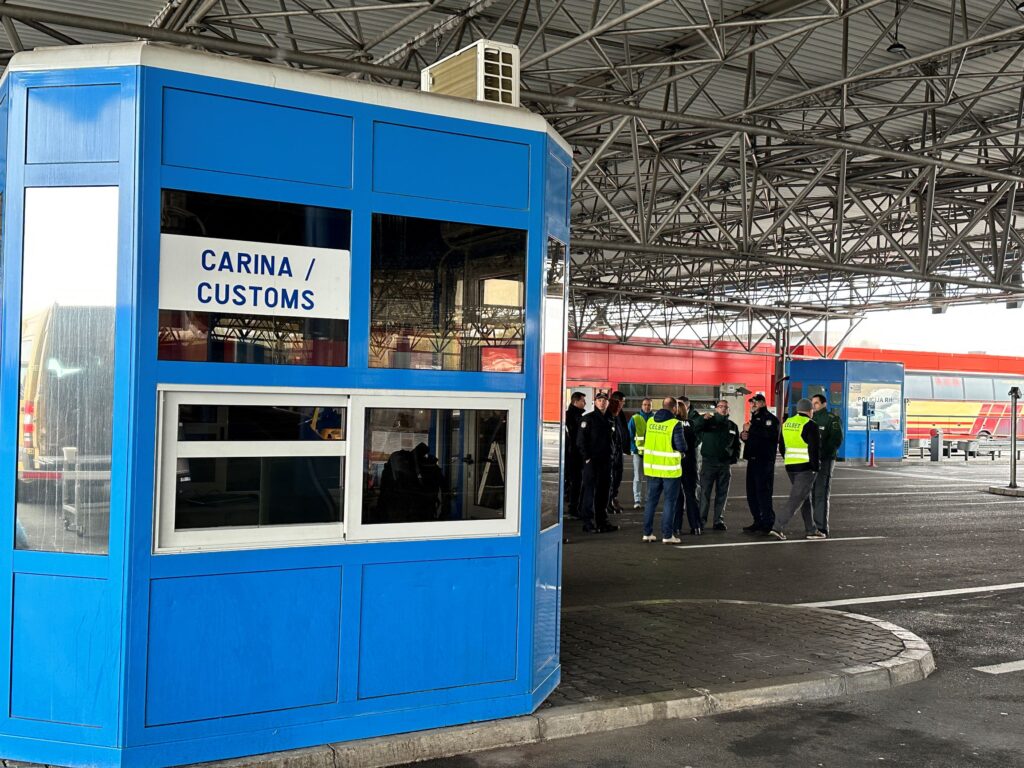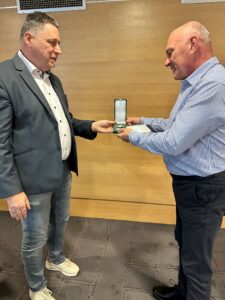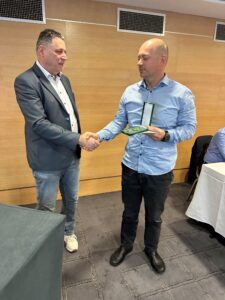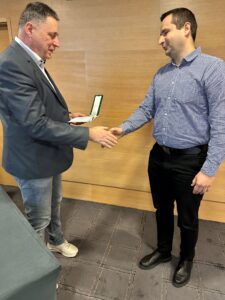Customs officers from southern CELBET member states shared their insights and experiences on the BCP Network South meeting organized in Osijek, Croatia.Practical part took place on Croatian –Serbian border crossing point in Bajakovo.
BCP Newtork is the largest network in CELBET. It consisted from 3 regional groups: North, Central and South Network.
Members of South network are: Bulgaria, Croatia, Greece, Hungary and Romania.
Thanks to networks’ meetings, participants stay updated on the issues correlated with the EU external border and also have access to the new solutions, insights and opportunities that couldn’t have been found without team approach.
Exercise on the border
First practical day, was organized on BCP Bajakovo, which is the biggest in Croatia.
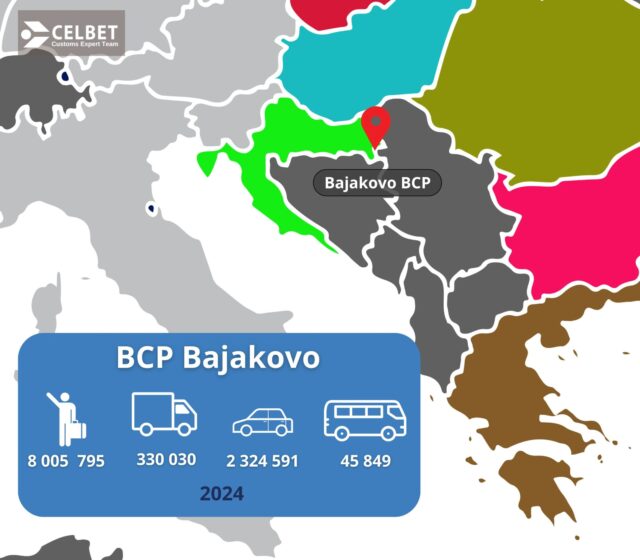
Members of the network were divided into 2 groups. Lauris Krivans, Equipment team leader, was moderating practical session of exchanging experience and inspection methods in use of customs control equipment.
Discussions and experience sharing
The second day of the BCP Network South meeting was opened by Head of CELBET Andras Bartha, who presented main benefits that CELBET MS gain form the activities: trainings, advisory functions, information exchange, missions, diagnostic tool, JCA and networking.
“We wanted to be practical and we are famous from our practical approach”
– Andras Bartha underlined during the speech.
Information on CELBET trainings and EU learning management system and challenges regarding customs control equipment were the topics presented by Training team leader Zsolt Dezsi and Equipment team leader Lauris Krivans.
During the feedback on trainings, Ivan Ivic from Bajakovo BCP, who participated in CELBET trainings, shared an interesting and valuable comment:
“I have participated in a bus search training in Przemyśl in Poland and I must say that the approach of the training was really good, especially in the safety area. I learned that it is important to do in 3 simple steps: wait, see the picture and act. Then collaborate with the colleagues, try not to act alone”.
After the training in Poland, Ivan, motivated by the CELBET event, has decided to share the knowledge with BCP Bajakovo newcomers. That helped him to show his training talent. His trainer’s skills have been noticed by national administration:
“I shared my knowledge on bus search with my new colleagues and the feedback was really positive. Management of the BCP decided to use my talent, motivation and fresh knowledge and put me into the national trainers’ system. This opened a new chapter in my career and I have succeeded in becoming a trainer of the Integrated Border Management training system on the national level”.
Enthusiasm, change in practice, new approach –were the main feedback points, presented by Konstantinos Yfantis, an officer from Greek-Albanian border.
“ We have got something we could use in our daily work to develop customs inspection methods”.
“Trainings gave a good base for local trainings”
– highlighted Sandor Horvath, deputy head of the Hungarian – Ukrainian BCP in Roszke.
Equipment insights
Live discussion and insights exchange started during inspection equipment part. Tuesday’s practical exercises on Bajakovo BCP was a helpful introduction to the equipment session. Mechanisms of checking the equipment, manuals, modern inspection tools, how to motivate officers to report damages, how to keep equipment in a good condition, have been main points of an open discussion.
BCP Network South meeting was also an occasion to present following topics:
- Outcomes of pilot exercise based on peak-time analysis at BCP Karasovici by Sandor Horvath an expert of Customs Control team,
- Drug Seizures Report by Peichin Ivanov, Risk Management team leader
- Outcomes of the BCP Diagnostics by Mika Poutiainen, BCP Evaluation team leader
CELBET Medals
BCP Network meeting was also a great occassion to hand in CELBET medals. Andras Bartha awarded: Ovidju Hurjui from Romania, Luksa Franquelli from Croatia and Istvan Karacs from Hungary.
Why CELBET has created networks ?
- to enhance cooperation between experts and officers,
- to share insights,
- to spread CELBET recommendations,
- to receive feedback to the teams
- to work out practical solutions.
![]()


